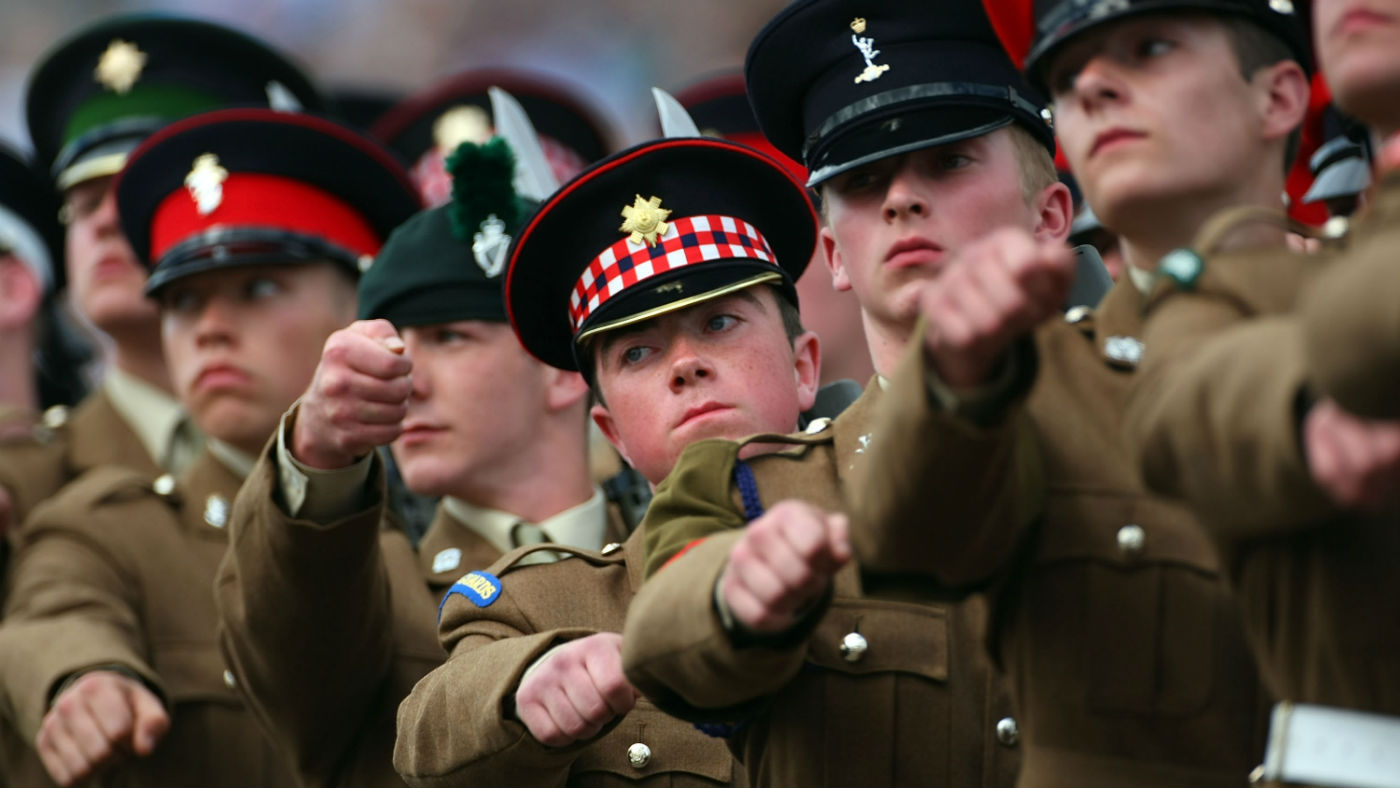British frontline units down by as much as a third
Capita recruitment deal under fire as private outsourcer accused on consistently missing targets

A free daily email with the biggest news stories of the day – and the best features from TheWeek.com
You are now subscribed
Your newsletter sign-up was successful
The number of personnel in frontline British army units is down by as much as third, new figures have revealed, prompting serious concerns about their readiness for action.
Data from the Ministry of Defence (MoD) has shown a number of battalions with hundreds fewer troops than their requirements state.
“While publicly available government figures show an overall deficit of 8%, the new data showed a much larger deficit in infantry groups on the frontline,” says The Guardian.
The Week
Escape your echo chamber. Get the facts behind the news, plus analysis from multiple perspectives.

Sign up for The Week's Free Newsletters
From our morning news briefing to a weekly Good News Newsletter, get the best of The Week delivered directly to your inbox.
From our morning news briefing to a weekly Good News Newsletter, get the best of The Week delivered directly to your inbox.
Separate figures out last month “paint a devastating picture of the army’s failure to retain demoralised, sceptical and under-utilised troops - and recruit enough new ones to replace them”, says the Daily Express.
“There are a myriad of factors at play, and it’s true that some are just beyond the Army’s control,” says the paper, but overall army numbers dropped for the eighth year in a row in January to 75,880.
With the British Army on course to miss its targets for the number of recruits it should have by 2020, the figures will pile more pressure on the government over its decision to outsource recruitment to a private company.
The MoD signed a decade-long £495m contract with Capita back in 2012 to manage recruitment to the armed forces. However, the National Audit Office found in December that Capita had consistently missed the army’s targets, with the shortfall ranging from 21% to 45% each year.
A free daily email with the biggest news stories of the day – and the best features from TheWeek.com
A 2017 report published by Tory MP Mark Francois, who also sits on the defence select committee and has called the Capita contract a “calamity”, attributed the fall in recruits to low unemployment, an ageing population, the increase in people taking up post-16 education and the ending of the deployment to Afghanistan in 2014.
However, the shadow defence secretary, Nia Griffith, had little doubt where blame lies.
“Ministers are guilty of appalling complacency as personnel numbers fall month after month. There is now nothing short of a crisis in recruitment and retention to the army. The decision to outsource recruitment to a private company, Capita, has been a total failure. It is high time to scrap that bad deal and bring the service back in house.”
There are, however, signs Capita is starting to get its act together. The company said the Recruiting Partnering Project was showing signs of improvement after it began working more closely with the Army.
“We fundamentally changed the working relationship,” said chief executive Jon Lewis. “It’s creating a common sense of ownership rather than dare I say it the master and servant relationship that was the picture of old. We’ve got to be in it together.”
The London Evening Standard said “the campaign was criticised in the media for its provocative approach to recruits”, which which targets ‘snowflakes’, ‘selfie addicts’ and ‘me, me, me millennials’.
Yet it appears to be bearing fruit, with applications for the British army at a five-year high and the ad campaign leading to a 78% rise in website visits.